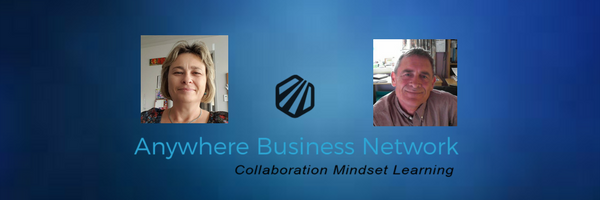 Older workers will have a profound effect on the labour market as aging will affect the size, characteristics and possibly the productivity of the workforce.
Older workers will have a profound effect on the labour market as aging will affect the size, characteristics and possibly the productivity of the workforce.
I recently heard of a woman in her 50’s being asked by a recruiter “how long was she planing to live?”. Apart from it being discriminatory and very inappropriate, it highlights that many who are 50+ are seeking meaningful employement and that workplaces just havent considered the implications of this. I believe there are so many “young” people” in recruitment that they just cannot imagine being 50+. In fact you dont need to be 50 + to experience this kind of discrimination in the workplace. There are so many poeple entering the workplace who are young and want flexibility they expect that everyone does. There has been a definate shift in the last 10 years from a feeling of security in a job to feeling like you just need to accept you will change jobs often. Regardless of this trend there is an aging workforce upon us and they will need to be accomodated because they will make up the bulk of the workforce. On the flip side those in this age bracket will need to think about marketing themselves differently and working differently.
Aging workforce stats
HRINZ had this to say on their website: “The New Zealand workforce is greying, becoming more female, and will stop expanding by about 2030. Older workers will have a profound effect on the labour market as aging will affect the size, characteristics and possibly the productivity of the New Zealand workforce. The aging of the New Zealand population will raise a number of labour market issues that have important implications for policy development, service delivery and the way organisations operate in the future.”
Judith Davey, Victoria University Professor writes “Decreased fertility means that fewer young workers are entering the workforce, not enough to replace retiring baby boomers (AIM, 2013). Skills shortages are emerging in many OECD countries (Callanan & Greenhaus, 2008). Van Dalen, Henkens, and Schippers (2009) found that employers in several European countries perceive shortages of labour as one of the main labour market challenges for the coming decades. In a speech in May 2013, the Minister for Social Development pointed out the New Zealand trends. By 2030, more people will be retiring than entering the workforce. The workforce grew by about half a million from 2000 to 2010 – but the projected growth for the next decade, is only 190,000. ”
She goes on to say “Firms which understand the implications of population ageing will be better placed to address its challenges. Llewellyn and Chaix-Viros (2008, p. 5) concluded that “the age-related workforce changes that lie ahead are among the most significant changes to which companies will have to adapt.” Successful adaptation will require investment in human capital and knowledge management in mixed-age workforces (Lissenburgh & Smeaton, 2003). ” Making Active Ageing a Reality
Why do older workers stay and how will it impact business?
I was recently at an ACC Health and Safety Expo in Nelson and one of their speakers spoke about the implications for business of an ageing workforce. Leonie Wallwork, Partners in Change, talked about the aging workforce and her message was:
· Employers need to prepare themselves for an increase in older workers
· Talent is ageless. Become and age friendly employer.
· Employers need to assess, reassess and assess again to make sure the work people are doing is appropriate for their skills, experience, physical capability and well being of the worker.
Leonie outlined reasons why older worker stayed and the top risks for have hiring and retaining an older workforce. She said those 65+ stay in the workforce for 3 reasons:
1. Choice
2. Necessity
3. Fear
The top risks for hiring or retaining an aging workforce are:
· Loss of talent -ie If the over 55s leave how will you replace them? Do you know how many you have already in your workforce?
· Loss of knowledge- i.e. What knowledge would walk out the door with them if they leave?
· Reclining productivity- There is little relationship between age and productivity. Engagement is what is important. How can you engage the older workforce? What incentives will appeal to them? Will you need to redesign their work?
·Compromised health and safety well being- It’s a myth that the oldest workers have higher injury rates. The highest rates for time off work is in the 30-54. Highest number of injuries reported are in 20-29yr. General well-being affects all workers.
·Damage to reputation- Treat people well is good for retention and your reputation. Your employees and their families are your potential customers. Assess your benefits and risks of your current workforce. Injuries to workers cost your business in time, reputation, money and morale of your workers. Talent is ageless.
What can you do if you are hiring ?
- Assess your current workers – can they do their jobs safety, now and in the future?
Its really important that you have a handle on the benefits and risks associated with workers you have currently. What age ranges to you have? What capabilities do you need them to have for the job they do? When you have this data you can then do an assessment to find out whether they are at risk in their current position and what the implications are of this person staying on in this role to do the job safely. This should be part of your task analysis and risk assessment process and review. - Involve your workers and find out what they are experiencing and any issues they feel may come up in the future for them (future planning).
- Examine your Retention and Recruitment implications
This has implications for your recruitment program as well. What talent and skills would you loose if your older workers leave? How can you accomodate them elsewhere or change the way they work in order to retain this. Ask yourselves-What am I doing right now to ensure they want to stay and see a future with this company. When recruiting new employees you need to consider the skill and experience of those applying but also the physical needs of that person to do the task. Could you change the hours, change the workstation, get someone else to do part of the job that the new person may not be able to do… don’t let age be a barrier.
What are the implications for you if you are 50+
I have blogged on this before. We need to consider alternative work options like working for yourself, contracting and casual work. In this case your hourly rate will be higher and our hours will changeable. You might work hard out for 3 months then have a month off between projects. It could be exciting but you have to set up good business systems, do some financial planning, marketing or your skills and learning what it is you are really good at. The hardest question I had to answer was “what are you passionate about? ” You need to find the answer it and this will drive everything you do.
You dont have to do it alone. We are Anywhere Business Network want you to feel you have a place to go to get your mindset in order, people to collaborate with and a place to find out and learn about what you dont know. Check out our website and social media feeds.
Kerri Bainbridge
One half of the Anywhere Business Team
Mindset, Collaboration, Learning
For tips and tools for being in business www.anywherebusinessnetwork.co.nz
Related articles and sourced information:
https://www.hrinz.org.nz/Site/Resources/Knowledge_Base/A-H/Ageing_Workforce.aspx
Judith Davey supplied me with her articles referenced here. More articles by Judith Davey please email her on: Judith.Davey@vuw.ac.nz



